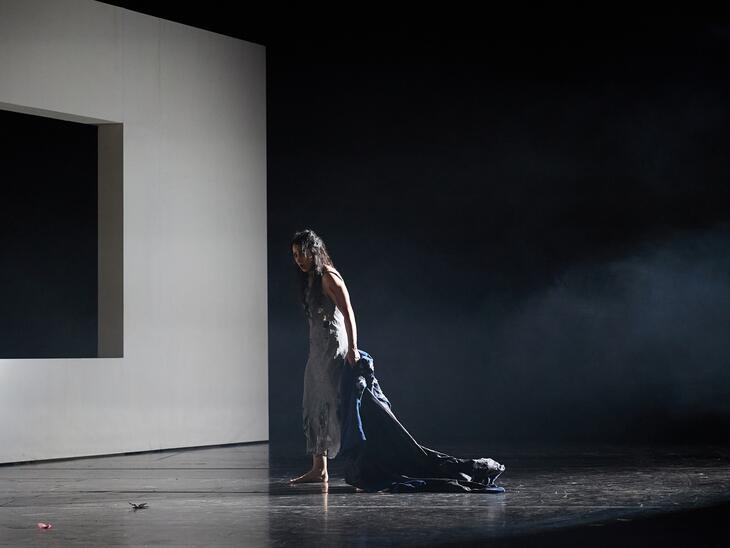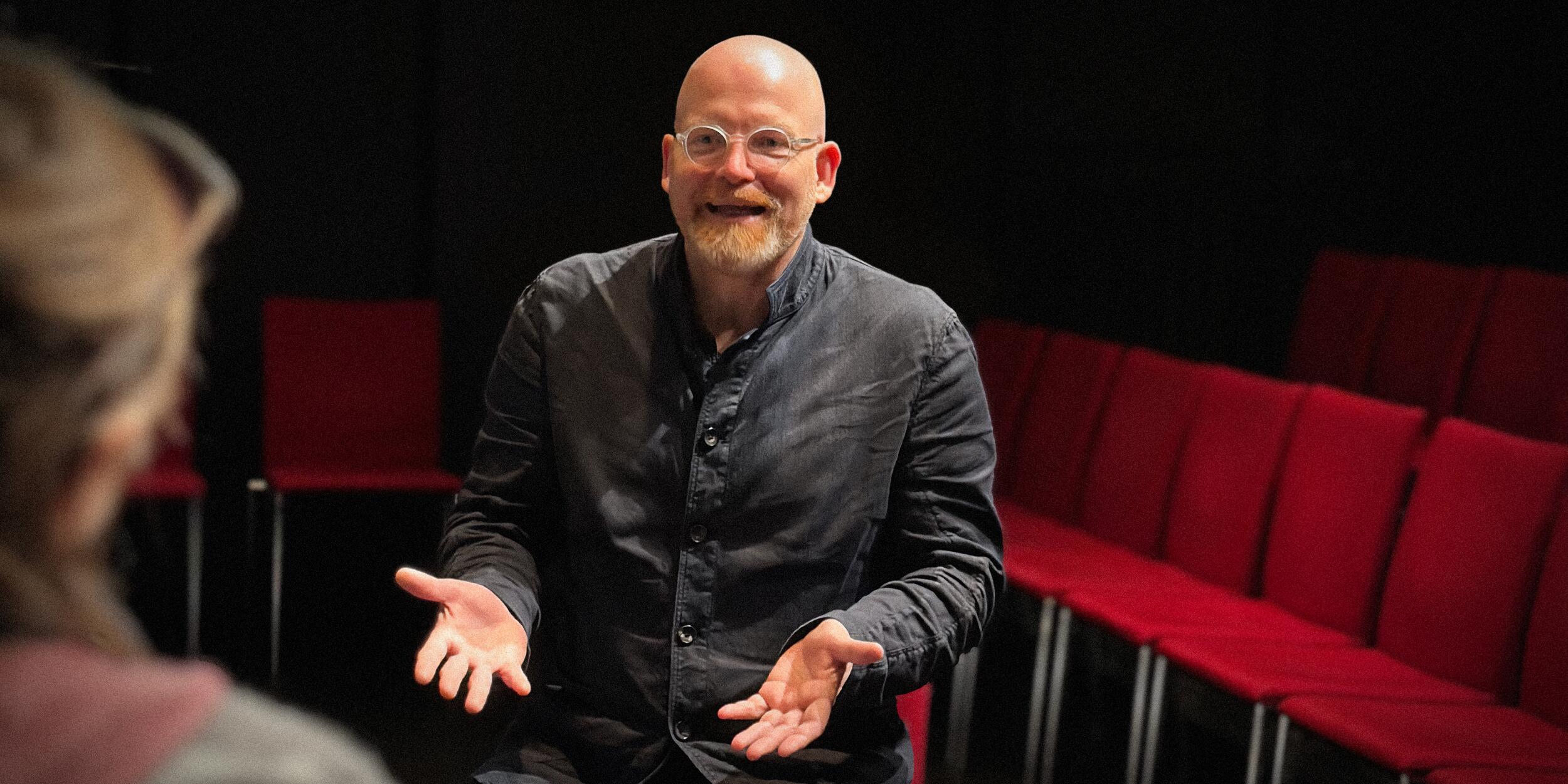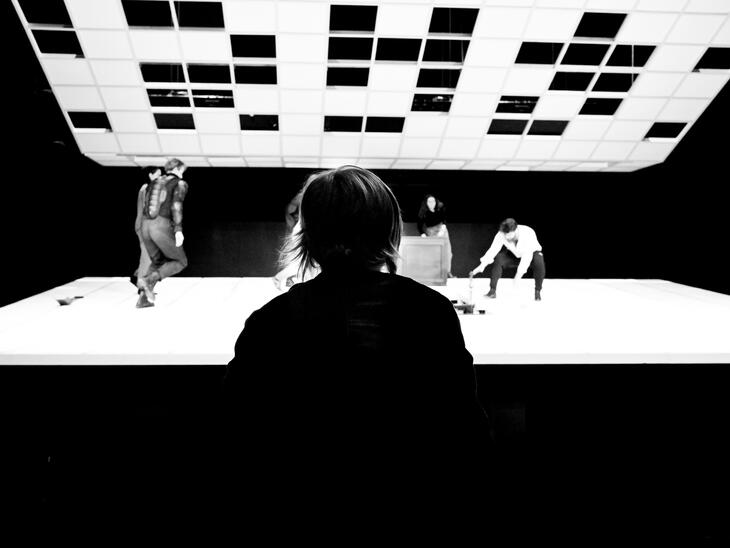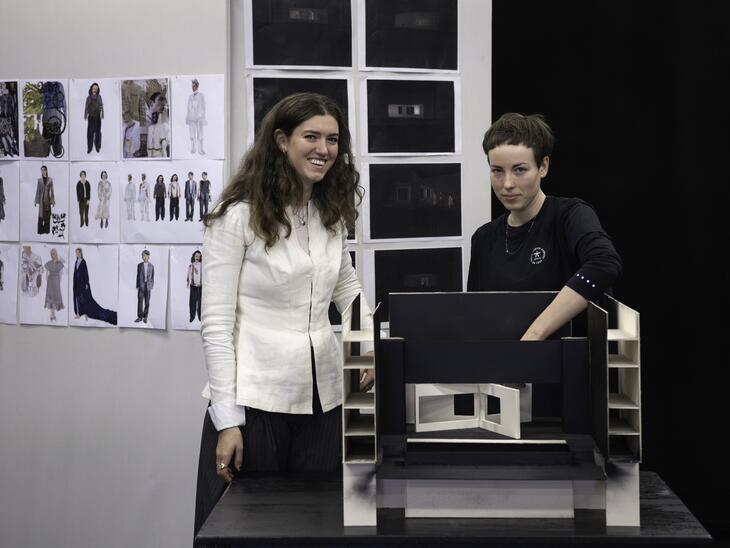Why did you choose Humperdinck's Hansel and Gretel for the next production of your opera class?
When deciding on a piece, the casting of the parts is always the main consideration. Hansel and Gretel is in repertoire at quite a few theaters and comes up every few years. There are some parts in it that are often sung at the beginning of one's career. These include the Sandman and the Dewman, but also the title roles of Hansel and Gretel themselves. There are also delightful character parts, such as the Parents and especially the Witch; three parts that are usually sung later because they place more dramatic demands on the voices.
In the case of our production at the Mozarteum University, we currently have a wonderful ensemble at our disposal, and I think we were able to cast all the parts really well and in a subject-specific way. Apart from that, working on Humperdinck's romantic opera is simply fun for all the participants - you can already see that in the rehearsals. The music itself and the work on the parts is inspiring. One last reason: Hansel and Gretel has not been on the repertoire of the Mozarteum University for many years. So it's simply the opera's turn again.
What special appeal does this opera have for you as a musician? What challenges are there for the students from a musical point of view?
Within the music history of the late 19th century, Humperdinck represents for me the link between Richard Wagner's music dramas and Richard Strauss, who conducted the premiere of Hansel and Gretel. Humperdinck broke free from Wagner's shadow as a composer for over a decade after working intensively on the world premiere of Parsifal at Bayreuth. In 1892, his earlier composed childlike fairy tale play Hansel and Gretel for the living room became a full-length work with orchestra for large opera houses. Here I see the challenge of the score: to reconcile children's and folk songs and the fairy tale tone on the one hand with a late Romantic format and a large symphony orchestra. This applies to the interpretation of both the score and the vocal parts. The tone changes rapidly from "Männlein im Walde" (little man in the woods) to a grandly soaring cantilena. Musically, the opera in its expression and dimensions is indeed more a work about children than for children. By the time the witch finally appears in the third act, the young listeners have had to show a lot of stamina. Interestingly, the opera is considered one of the introductory pieces for young opera-goers, and to some extent it is, of course - but not only.
The roles are all double cast. How much room for interpretation do the individual singers have for one and the same role?
The scope for interpretation of our students is enormous. All the participants make the parts "their" parts in the course of the rehearsal phase. This applies both to the musical interpretation and to the scenic presentation on stage. In the Master's program "Opera and Music Theater", we offer our students one entire professional part per semester over a period of two or three years, which they develop together with us teachers and finally perform. In this way, they develop their own individual approach to their future career as an opera singer. Between the first opening of the piano score at the beginning of the part study to the make-up removal after the last performance lies the whole cosmos of the profession and a wealth of experiences: how do I learn my role? How do I work on the language? How do I rehearse in the ensemble? How do I develop my voice for the part? How do I bring voice, music and performance together when things get serious in the final rehearsals? How do I manage my own expectations and everyone else's expectations? How do I handle success and how do I handle difficult situations? How do I find my way among all the many challenges of this "dream job"?
Our approach is to prepare students in the best possible way for the demanding theater business, while at the same time fostering the individual personalities of each and every one of them. At the end of a production phase, it is always most beautiful when the students feel that they have become part of a harmonious ensemble and at the same time have found their personal approach to the respective part - or rather, have made the role "their" role. In the case of Hansel and Gretel, we actually have a casting coup: the part of the witch is sung once by a mezzo-soprano and once by a tenor. So a good reason to watch the opera twice and experience how differently a role can act and "sound" depending on the casting.
The opera will be performed in the version for chamber orchestra by Alexander Krampe. To what extent does this reduction change the musical shape of the opera compared to the "big" sound of Humperdinck's original romantic instrumentation?
I am curious about that myself. To be honest, this version is the reason to perform the opera at all in the context of education at our university. The score of Hansel and Gretel can be so thick and loud that the stage sometimes has a hard time asserting itself - especially in everyday repertoire. The discrepancy between contrapuntal large Wagner orchestra in the pit and "light" voices on stage presents even large houses with casting issues that are not at all easy.
In this respect, our decision for Hansel and Gretel was at the same time a decision against the large symphony orchestra - as much as I as a conductor naturally appreciate the sound of the original score. In the context of training, the stage and the healthy vocal development of our students are in the foreground. I therefore hope for transparency from Alexander Krampe's version and also for a structural view with a burning glass on the score. It is a delightful task to bring to life the multicolor of the original composition with only 13 instrumentalists and to trace the great symphonic progressions, which also constitute the work, quasi "en miniature".
Are there any productions of the opera from the past that have particularly inspired/impressed or irritated you musically?
It's no coincidence that many Wagner conductors are particularly fond of opera. In my view, the ultimate in Hansel and Gretel recordings is Sir Georg Solti's recording with the Vienna Philharmonic and a great ensemble. I also have fond memories of a performance at the Vienna State Opera conducted by Christian Thielemann.
I have conducted Hansel and Gretel many, many times since the beginning of my career. I remember very fondly a production in Innsbruck by Brigitte Fassbaender, herself a very famous "Hansel." There, as a guest, I was allowed to conduct the opera for the first time. Later, I worked with the British director Ultz on a very radical and controversial production that was a real scandal at the premiere. I was fully behind the production and felt that Humperdinck's music has rarely sounded so kitsch-free and immediate as in the context of that radical setting. Sometimes one experiences this music as illustrative and the tone fluctuates between mawkish, somber, and pathetic - at the time, I found it to be immediately moving and deeply human.
I am very much looking forward to the upcoming production in December 2023, and I believe that together with director Rosamund Gilmore we have agreed on a very promising and exciting reading of the opera.




